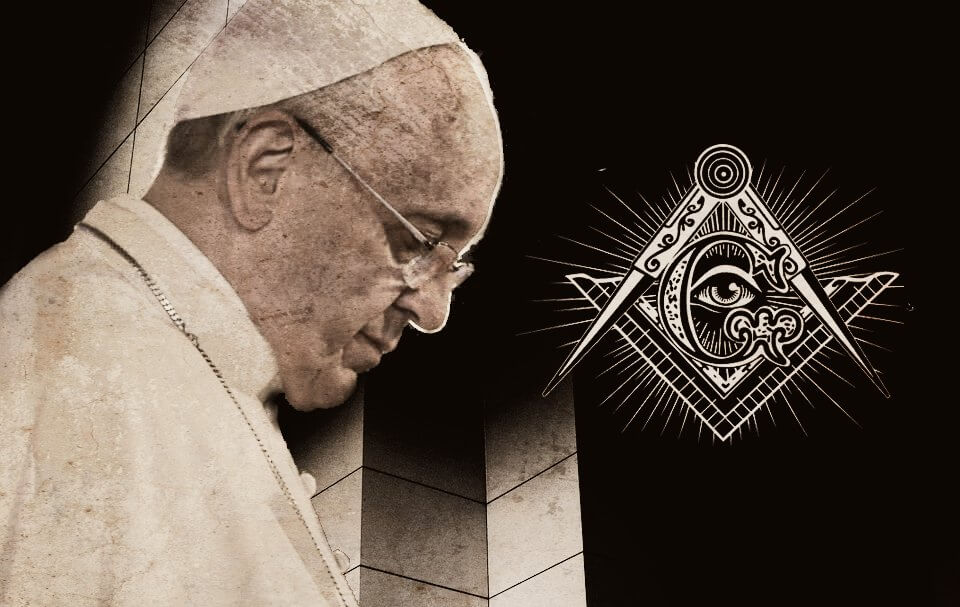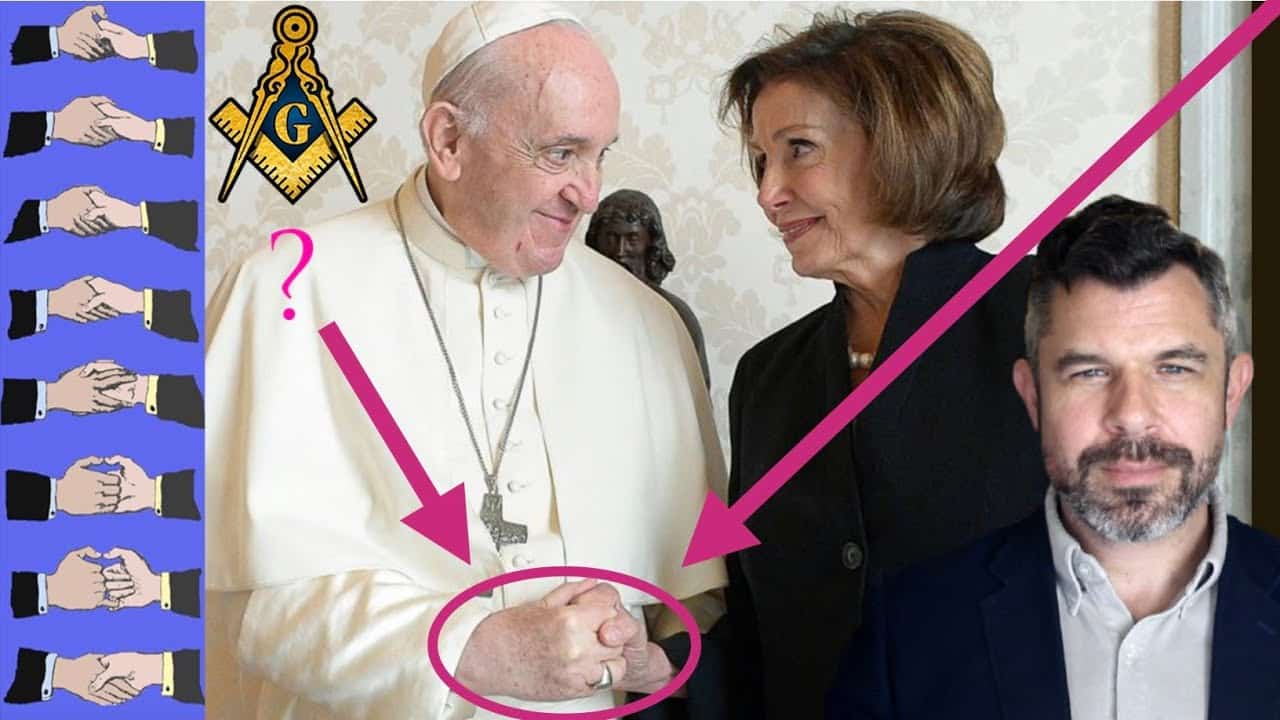Is the papacy undergoing a silent transformation, a dismantling as some claim, or is it simply a continuation of the Church's evolution in the modern world? Allegations persist that Pope Francis is a Freemason, accusations that have ignited a firestorm of debate and speculation.
The origins of these claims are complex, intertwined with symbolism, historical interpretations, and a healthy dose of conspiracy theory. A photograph taken in 2008 by Argentinian photojournalist Pablo Leguizamn has become a focal point for those who believe Pope Francis has ties to Freemasonry. The image, taken before he became Pope, shows then-Archbishop Jorge Mario Bergoglio riding the subway in Buenos Aires. He is dressed in black, with his right hand tucked in an intriguing manner.
| Full Name: | Jorge Mario Bergoglio |
| Born: | December 17, 1936, in Buenos Aires, Argentina |
| Religious Order: | Society of Jesus (Jesuits) |
| Ordained Priest: | December 13, 1969 |
| Ordained Bishop: | June 27, 1992 |
| Created Cardinal: | February 21, 2001, by Pope John Paul II |
| Elected Pope: | March 13, 2013 |
| Pontificate: | March 13, 2013 Present |
| Key Roles & Positions: | Archbishop of Buenos Aires (1998-2013), Cardinal (2001-2013), Pope (2013-Present) |
| Known For: | Emphasis on mercy, social justice, and reform within the Catholic Church. He has also focused on environmental issues and interreligious dialogue. |
| Reference: | Vatican.va - Biography of Pope Francis |
The Vatican, however, has remained firm in its stance on the matter of Freemasonry. The Dicastery for the Doctrine of the Faith, under the leadership of Cardinal Victor Fernndez and with the Pope's approval, has repeatedly reaffirmed that Catholics are forbidden from joining Masonic organizations. This position is not new; it echoes historical pronouncements from the Church.
A document released on Wednesday by the Vatican's Dicastery for the Doctrine of the Faith reiterated the prohibition on Catholics becoming Freemasons. This new document, signed by Pope Francis and Cardinal Fernndez, came in response to concerns raised by a bishop from the Philippines regarding the growing number of Catholics joining Masonic lodges. The letter explicitly states that "active membership in Freemasonry by a member of the faithful is forbidden."
The claims connecting Pope Francis to Freemasonry have been fueled by various sources, including interpretations of his actions and statements. Some Freemasons, notably the Grand Lodge of Italy, have expressed admiration for Pope Francis's work, describing it as "deeply resonant with the principles of Freemasonry." This type of commentary, while perhaps intended as an olive branch, has further stoked the fires of speculation.
Detractors of the Pope often point to perceived symbolic gestures, like the Pope's greeting in St. Peter's Square, introducing himself as the "Bishop of Rome" rather than the "Pope," as evidence of a hidden agenda. The way he shakes hands with others, and the handshakes themselves, have been scrutinized, with some arguing that these gestures resemble Masonic practices.
- Movies Shows Find Stream Free Latest Bollywood Updates
- Missing Results Finding Your Movies Series With Justwatch More
It is important to note that these claims have been widely dismissed by mainstream media and Church officials. The narrative often appears in online circles, where fringe theories sometimes gain traction. It is worth recognizing that there are long-standing disputes between Freemasonry and the Catholic Church.
Historical context is crucial when exploring this topic. For example, Pope Pius IX, in his 1873 encyclical "Etsi Multa," detailed the political attacks on the Church by Masonic groups in various countries. He referred to the Freemasons deceits and machinations as the work of the synagogue of Satan, drawing parallels to the Book of Revelation.
The election of Pope Francis, however, brought forth mixed reactions. While some Freemasons welcomed his election with enthusiasm, there were also expressions of disappointment regarding the pace of dialogue and reconciliation. Some felt that the Pope had not given Freemasons the recognition they deserved, especially in light of his embrace of interfaith dialogue.
The recent book "Infiltration" by Taylor Marshall is one example of a publication that perpetuates these arguments, transferring various tropes and accusations onto Pope Francis. The book's claims rest on the belief that Pope Francis is a Freemason and that his pontificate represents a plot against the Catholic faith. The author points to alleged esoteric symbolism and gestures as evidence.
The Vatican's firm reiteration of its prohibition of Catholics joining Freemasonry should be seen as a clear indication that the Church stands by its historical position. The recent document underlines this point and is a response to those who may have been confused or uncertain.
The question of Pope Francis and Freemasonry remains a complex one, full of symbolism, historical analysis, and competing narratives. Those making accusations of this nature often point to actions and statements that they interpret as proof of hidden associations. The Vatican's stance is clear, and the claims, while captivating to some, have not been substantiated. It is important to separate fact from speculation and to understand the historical context within which these claims have arisen.
Ultimately, it falls on individuals to assess the information critically and arrive at their own conclusions. However, the official stance of the Catholic Church, as consistently reiterated, is that membership in Freemasonry is incompatible with the Catholic faith.


